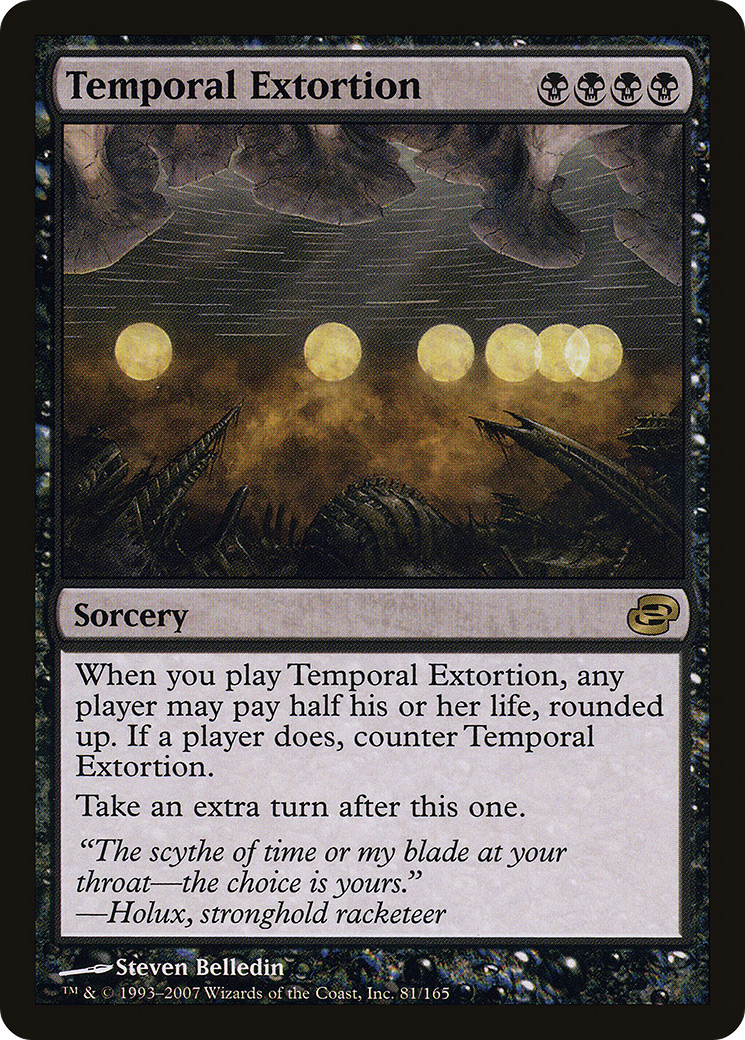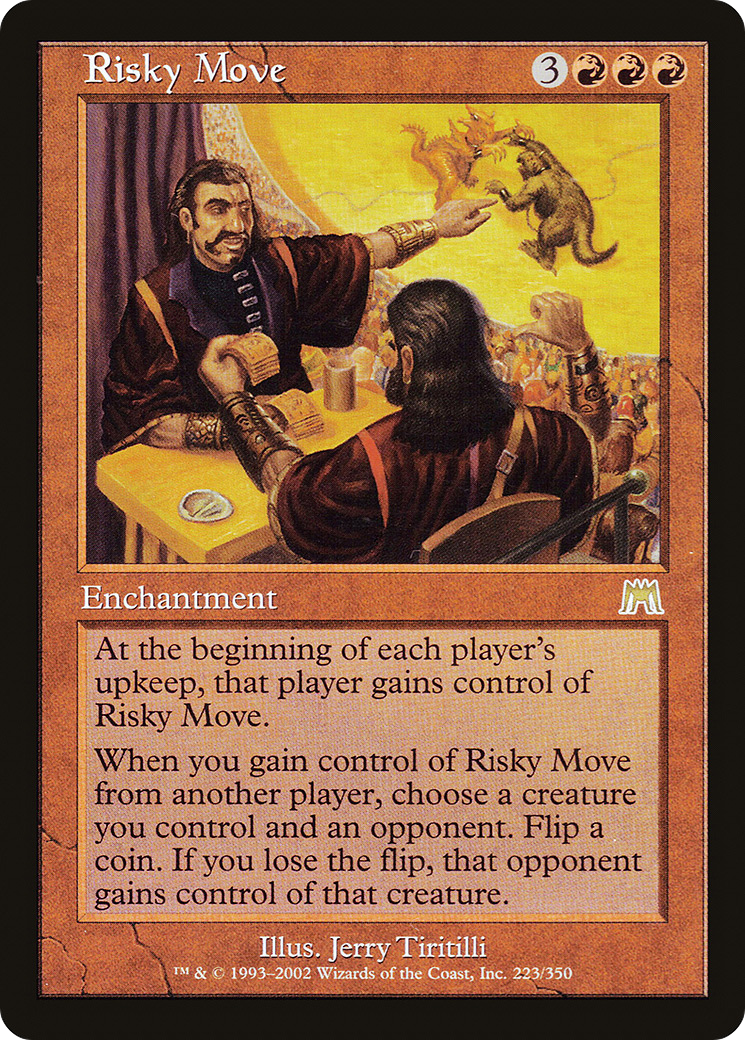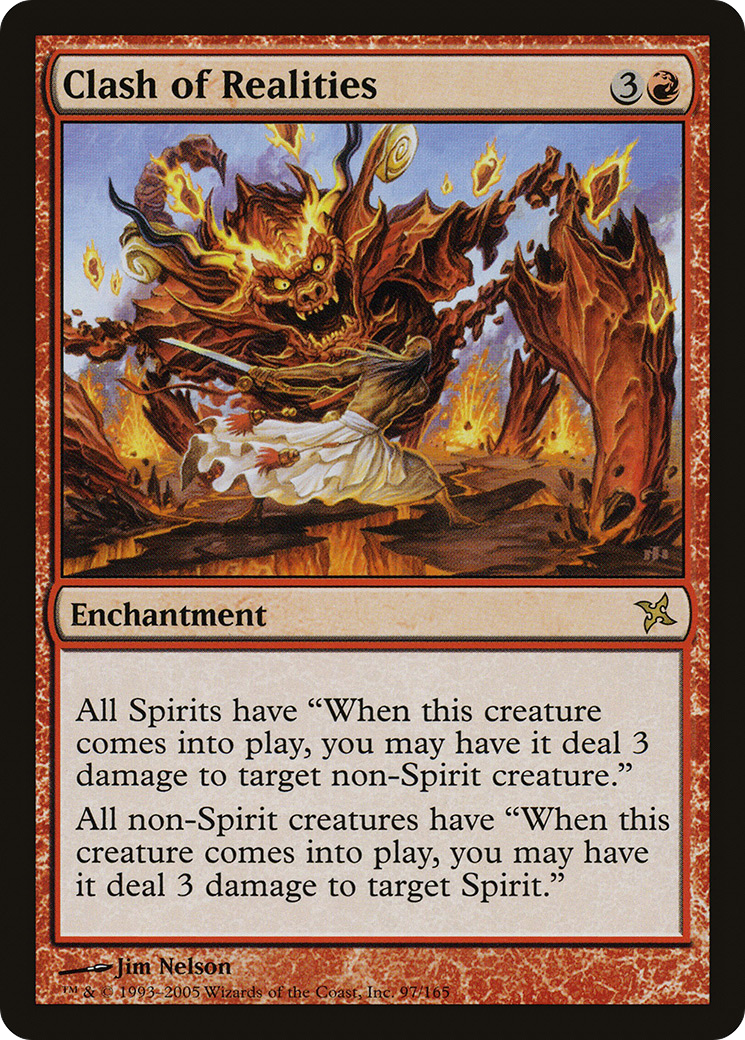Stop Trying to Make CR Backups Happen
They're not going to happen.

The Comprehensive Rules have a section on backing up, section 728. Despite being by far the shortest section in the CR, and almost never directly relevant to tournament play, it has captured the public imagination. Much like layers, judges just love talking about Panglacial Wurm and Selvala.
While this area of the rules is mostly irrelevant corner cases
Why does section 728 exist?
Some game actions involve a series of steps that need to happen one at a time, with the restriction that it should only be legal to take some of the steps if all of them are eventually completed. The best-known example of this is casting a spell
This may remind you of tournament policy, which also allows us to back up the game in certain situations. And indeed, that is what will happen in any tournament game where a player begins to cast a spell and can't finish; they've committed an infraction and the JAR or IPG will take over and back things up to before the spell began to be cast.
The reason it's also in the CR is because the CR is intended to apply to all games of Magic, even those that don't take place in a tournament. Magic is a little weird, in that you can take a series of legal actions that cause you to wind up in an illegal game state. There needs to be some answer to what to do when that happens, and the one that Wizards went with is "undo it all, pretend that never happened". In a sanctioned tournament the JAR or IPG will take precedence, but Wizards would like tournament policy to be separate from the core gameplay of Magic, so we get this section in the CR for people who want to know how their casual games work. (Or Arena and MTGO.)
If it's illegal in the CR it's illegal in real life
There's a common misconception that a player can start to cast a spell and then fail, and that this is fine since the CR undoes it. That's not how it works. When the CR says that casting a spell without paying for it is illegal, it actually means it's illegal. If a player does it in a tournament, they've committed an infraction and will receive the appropriate penalty.

To see why this is necessary, consider controlling Goblin Test Pilot while your opponent controls Suppression Field.
I'll admit I'm a bit confused as to why so many people think this would be allowed when the CR explicitly says it's illegal. The argument in favor of allowing players to do this is generally something like "it's a violation of the CR, not tournament policy", but... all the Game Play Errors in the IPG are for violations of the CR. Rule 115.2 in the CR tells us that it's illegal to cast Unsummon targeting a creature card in your graveyard, and if a player tried to do that in a tournament, that's be a problem! Section 728 is no different; when the CR says that something is an illegal action, it actually means it.
There are some weirder cases where the player can't know if the action is going to be illegal until they start. Activating Goblin Test Pilot or casting Evangelize with no mana open while one of the potential targets is Kopala, Warden of Waves. Starting to cast a spell without enough mana and hoping that Selvala with produce enough. Starting to cast a spell with assist and hoping that another player will help you out by paying for the rest. These are all handled the same way: If the action ends up being legal, it's fine. If the action ends up being illegal, it's an infraction.

It feels weird to some judges that a player can intend to (potentially) do something illegal, and get away with it as long as they don't actually do the illegal thing. The main thing to note here is that section 728 is not an exception in this regard; this is how we handle all infractions. A player only gets a penalty if they actually did something illegal, not just if they thought about doing it. If a player is losing a game that they feel they should have won, and they think to themselves "ugh, if I don't draw my out next turn, I'm going to use my fetch land to shuffle-cheat it to the top of my library", but then they get lucky and draw it naturally, did they Cheat? Nope! No illegal game action ever occurred.
For clarity, if a player asks whether it's legal to do this with Selvala or whatever, here's the answer: "It is legal to begin to cast the spell, even if there's a chance that you won't be able to pay for it. If you get lucky and end up being able to pay for it, then you're fine. If you get unlucky and cannot pay for it, you have committed an illegal action, knowing it was illegal, with the intention of gaining an advantage. This is Cheating and you'll be Disqualified." If a player wants to take their chances, they're allowed to do so.
Wait, tournament policy overrides the CR backups?
Yep! At least, usually. In general, the JAR/IPG take precedence over the CR
This is relevant because CR backups are quite different from IPG backups. Let's say a player starts to cast Supreme Verdict, taps Milikin for mana, then realizes they don't have double white. According to the CR backup, we put the Supreme Verdict back in hand, but they're held to the activation. Whereas if we follow the IPG, they take that back too.
Another example: AP is enchanted with Wheel of Sun and Moon, and they cast Cathartic Reunion, putting two cards on the bottom and then realizing they don't have red. The IPG backup has us undo all of that, but the CR backup has us leave the two cards on the bottom and only put the spell back in hand, so they just end up minus two cards in hand.
These sorts of things are not how infractions should be handled in a tournament. Our goal is to get the game state back as close to how it should have been as possible, and leaving two cards on the bottom of the library is... not that. The IPG backup on the other hand tells us to reverse all actions, and handles this much more smoothly.
The CR backup seems kinda... weird?
Oh, yeah, it's horrifically broken and makes no sense.
For the 90% of readers who didn't click the Yawgatog link I provided above, here's what section 728 actually says:
If a player takes an illegal action or starts to take an action but can't legally complete it, the entire action is reversed and any payments already made are canceled. No abilities trigger and no effects apply as a result of an undone action. If the action was casting a spell, the spell returns to the zone it came from. Each player may also reverse any legal mana abilities that player activated while making the illegal play, unless mana from those abilities or from any triggered mana abilities they caused to trigger was spent on another mana ability that wasn't reversed. Players may not reverse actions that moved cards to a library, moved cards from a library to any zone other than the stack, caused a library to be shuffled, or caused cards from a library to be revealed.
There's so much wonky stuff going on here. First off, "may reverse"? Why is there a "may" in there‽ This means that I can start to cast Doom Blade, discard Riftstone Portal to Skirge Familiar, tap my lands for green and white, then if Doom Blade is illegal I can put the Riftstone Portal back into my hand and keep the green and white mana? That... seems wrong.
Maybe the "legal" qualifier there is supposed to handle this, and it actually means something like "the player may reverse any mana abilities that would have been legal to activate prior to taking the illegal action, and any other mana abilities must be reversed". Maybe it means that, but it certainly doesn't say that.

Regardless that wouldn't actually solve the problem, because the time at which the player activated the ability can matter. If you cast Gravecrawler from your graveyard, tap Milikin for mana, then reverse the Gravecrawler, you've now milled a card to be second from the top in your graveyard. If you start to cast an artifact from the top of your library with Mystic Forge, tap Chromatic Sphere or Selvala for mana, then back up the spell, you've now drawn the second card down from your library.
There are so many other problems too. The CR prevents us from backing up anything that has to do with the library (even if it wasn't "legal"), which leads to nonsensical results like the Wheel of Sun and Moon above. (You could also make the Riftstone Portal thing unreversable by spending the mana on something that interacts with the library, like Milikin with Suppression Field.)
Sometimes it's not even clear where to return the spell. If I start to cast Lesser Masticore from my library with Mystic Forge, discard Blightsteel Colossus, then don't have enough mana to cast it, where does it go? The library has been shuffled!
My favorite problem though is as follows: You control Future Sight and the only card in your library is Emrakul, the Aeons Torn. You only have 6 lands, so not anywhere near enough to cast it. Nonetheless, you can legally begin to cast Emrakul by putting it onto the stack, then tap Chromatic Sphere to draw a card, and win the game due to Laboratory Maniac.
This one is particularly interesting because the game has now ended and never even gets to the point where it notices that something illegal happened. Unlike all the previous scenarios, it's not solved by the policy of "ignore section 728 and apply the IPG", since nothing illegal happened in the first place! Still, this seems like something that shouldn't be allowed. Interestingly, this works on Arena, and Wizards has ruled that this is intended.
So in general, it looks like the best approach is to pretend that section 728 doesn't exist, and sequences that would become illegal later are just not legal to even begin.
Wait, not quite

There's one snafu in this guideline, which is the existence of this Official ruling (and this one), which says that we're supposed to apply the CR backup rather than IPG backup. This is confusing since, if applied consistently, it would lead to all sorts of nonsensical results as discussed above. It was later sort-of recanted here, though it's still not clear from that post exactly how it's supposed to work. After talking to some of the people involved, I think I've figured out the intention:
By default, we apply the IPG backup. However, sometimes the IPG backup doesn't work very well. In these cases, the judge is allowed to selectively apply elements of the CR backup instead if it makes the fix smoother.
For example, in the Cathartic Reunion + Wheel of Sun and Moon case, the IPG backup handles this just fine, so we apply it as normal and move the cards from the library back to hand. But say instead it's the Mystic Forge and Chromatic Sphere case. Now the IPG backup would have us take a random card from the player's hand and put it second from the top of their library, which is rather disruptive. So we instead apply the CR backup and hold them to having activated Chromatic Sphere. That's still not a perfect result, but it's better than the one prescribed by the IPG, so we're allowed to do it.
This was not communicated optimally, which led to some confusion; many non-Official sources went on to write articles or answer questions under the assumption that that the CR backup always takes precedence.
Policy handles illegal sequences as a single block of actions
There is one way in which all this is actually quite relevant to high level play, and that's knowing where to back up to as part of a normal IPG/JAR backup for a player who made a mistake.
AP casts Force of Will, tapping 4 lands, which NAP then notices. Applying policy as written, we'd back up the illegal cost payment and tell AP to play on from there, so they're now required to exile a blue card from their hand in order to legally continue the game. We don't do that, but why not? Putting Force of Will onto the stack was legal, and we only back up to the point of error.
Compare this to AP casting Doom Blade on a creature with indestructible and putting it in the graveyard. Here we back up only to the resolution of the spell, not the casting. But they feel very similar! Many players, and even many judges, think of casting a spell and resolving a spell as part of the same overall process.
Section 728 of the CR gives us our answer: We back up to the exact point of error, treating sequences that the CR calls out as being "all or nothing" as a single action for the purposes of the backup. (And in fact it has to be this way, because if we didn't do that and always backed up to the exact point of error, the Force of Will player would enter an infinite loop of getting Warning after Warning if they had no blue cards in hand.)
The two examples above are going to be obvious to most experienced judges, but this understanding helps us clarify some of the more borderline cases too:
Question #1
Alice uses a fetch land to search for Dryad Arbor (or Urza's Saga to search for Haywire Mite, etc.), puts it onto the battlefield, and then the opponent points out their Grafdigger's Cage. Does Alice get to find a different noncreature card instead?
No. Finding a card in the search is one instruction, and putting the chosen card onto the battlefield is a completely separate one. Alice doesn't get to put anything onto the battlefield.
Question #2
If Alice tries to pay for Ghostly Prison with Deathrite Shaman, are they allowed to choose not to attack at all?
Yes. Declaring attackers is an "all or nothing" process that the CR handles under section 728, so we back up to the beginning of the entire process.
Question #3
Alice taps Urza's Mine for 2, then her opponent points out that she doesn't control Urza's Tower. Do she get to take back the activation in order to play the Urza's Tower in her hand?
No. Activating an ability and resolving that ability are separate actions (just like casting a spell and resolving a spell), so we only back up the illegal amount of mana added to her mana pool. She tapped it for one mana.
Question #4
Alice casts Crop Rotation and picks up her library, only to have the opponent point out their Leonin Arbiter. Does Alice get a chance to pay {2}?
Nope. Paying for Leonin Arbiter is a special action that Alice must take before beginning to resolve the Crop Rotation, which she didn't do. We back up to the point of error, which was beginning to search the library during the resolution of Crop Rotation.
Question #5
Alice plays Blood Crypt paying 2 life, then the opponent points out their Archon of Emeria. Can Alice choose to play a different land, or to play Blood Crypt without paying 2 life?
No. There are two replacement effects applying to Blood Crypt entering the battlefield, and it is legal for Alice to first apply Blood Crypt's and pay 2 life for it. The error was when she failed to apply the effect from Archon of Emeria, so that's the point we back up to, which is after she already (legally) paid 2 life.
Question #5
Alice casts Doom Blade targeting a black creature. Is she allowed to take back the Doom Blade entirely? (As opposed to casting it with a different target.)
Yes. Since casting a spell is process that's covered under section 728 in the CR, we back up to the beginning of the entire process rather than force Alice to cast it with a different target.
(Note that these answers are for Competitive REL. At Regular, we can be more lenient and let them take more things back.)
As is often the case with policy philosophy, this fact about backups is not explained anywhere in the documents, but it has been confirmed by various Official rulings. And I'm really happy with it as (unlike some other parts of policy), it's very elegant and easy to remember.